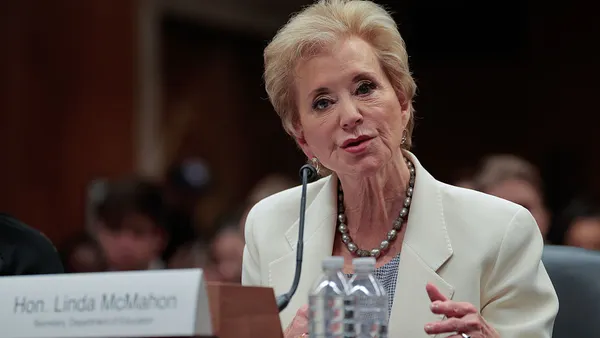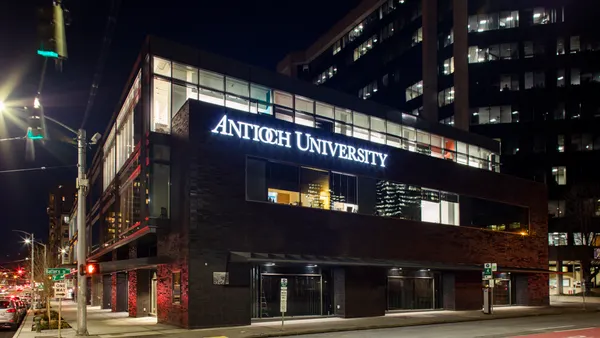Dive Brief:
-
Cornell University is telling students who plan to live on campus and will be arriving from coronavirus hotspots to quarantine elsewhere in New York or another safe state for two weeks.
-
Students who can't do so will need to start the academic year online, which for Cornell begins in about a month.
-
The new limitations highlight the challenges facing colleges this fall as they try to comply with states' quarantine mandates.
Dive Insight:
New York, where Cornell is based, has restricted travelers from 34 states, plus Washington, D.C., and Puerto Rico as of Friday. Visitors from these areas need to self-isolate for 14 days once they reach New York.
It is among several states that have asked those from out of town to quarantine for two-week periods upon arrival. These rules, however, complicate colleges' fall planning, because despite the recent surge in the number of verified coronavirus cases in the U.S., many institutions are still attempting some degree of face-to-face instruction, Cornell among them.
The state's travel constraints came to a head with the Ivy League institution, which initially said it would provide students who plan to live on campus with space to quarantine. Now, some out-of-state students will need to find accommodations in a state not on New York's travel advisory list for two weeks, which could prove difficult.
Cornell's decision prompted immediate social media backlash, with critics questioning how students could afford to follow the requirement without the university's assistance. A Cornell spokesperson referred Education Dive to a statement on its website.
Its new policy raises an equity issue, said Maddie Buitendorp, a student and data and policy analyst for the College Crisis Initiative (C2i) at Davidson College, which tracks institutional responses to the pandemic.
Not every Cornell student will be able to find alternative housing, Buitendorp said, which will prevent some from returning to campus. And colleges can't all afford to reserve space on campus for students to isolate.
"This is the beginning of a trend of colleges getting stuck,” Buitendorp said. “And maybe a first step in others going fully online."
State-level quarantine requirements are already pressuring colleges nationwide.
The District of Columbia recently announced visitors from more than 25 states with a high number of cases would need to quarantine for two weeks, throwing a wrench into many area schools' plans to reopen campus.
Many D.C.-based colleges, including American University, which recently switched from a planned hybrid term to online, told local news media they were still reviewing how the District's order would affect their campuses.
Anyone visiting Hawaii must quarantine for two weeks, though colleges have gotten an exception that allows out-of-state students to quarantine together.
And New Hampshire's order, which applies to non-New England states, has started to trickle down to its colleges. Dartmouth College students living on campus will be forced to remain in their rooms, except to use the restroom, until they test negative for the coronavirus, or 48 hours after they arrive, the student newspaper reported.














